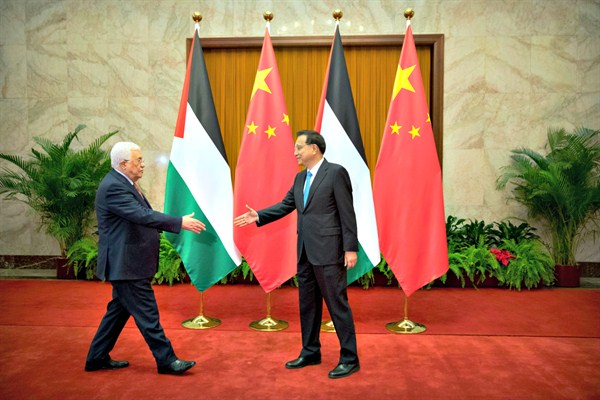When Chinese President Xi Jinping met privately in Beijing on July 18 with Mahmoud Abbas, the president of the Palestinian Authority, he floated the idea of three-way talks in which the Chinese government would attempt to mediate between Israeli and Palestinian leaders. At a time when it seems the United States under President Donald Trump is disengaging from global leadership, Xi’s proposal hints at the possibility of reshaping the political landscape of the Middle East.
Can China actually supplant the U.S. as the primary external diplomatic force in the region? It is a question that loomed over Xi’s posturing even as the Chinese plan for trilateral dialogue with Israelis and Palestinians fizzled at the first inevitable hurdle: The Israeli government has shown no inclination to participate.
The offer to mediate was only the latest diplomatic overture from China, which in the past five months has announced its desire to help resolve five different conflicts in the wider Islamic world. In March, Foreign Minister Wang Yi declared at a news conference on the sidelines of China’s National People’s Congress that he hoped to facilitate talks between Saudi Arabia and Iran. Wang offered again in June to help find common ground between Pakistan and Afghanistan following border clashes between the two countries. In early July, China offered to mediate between India and Pakistan over disputed territory in Kashmir. And on July 20, just two days after Xi’s meeting with Abbas, Wang declared that China was ready to assist Kuwait in patching up Qatar’s troubled relationships with Saudi Arabia and the United Arab Emirates.

